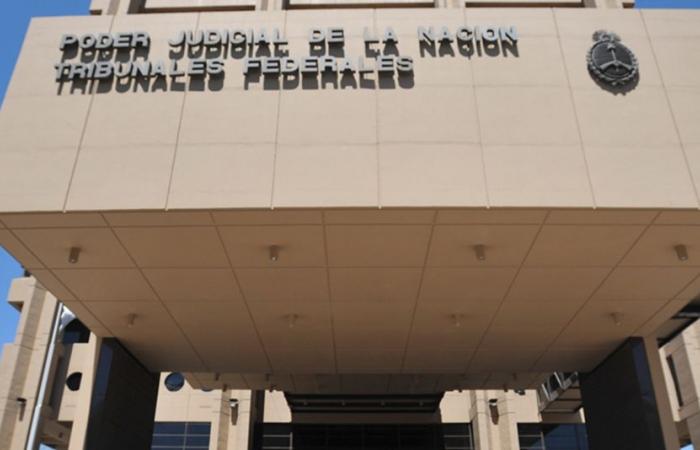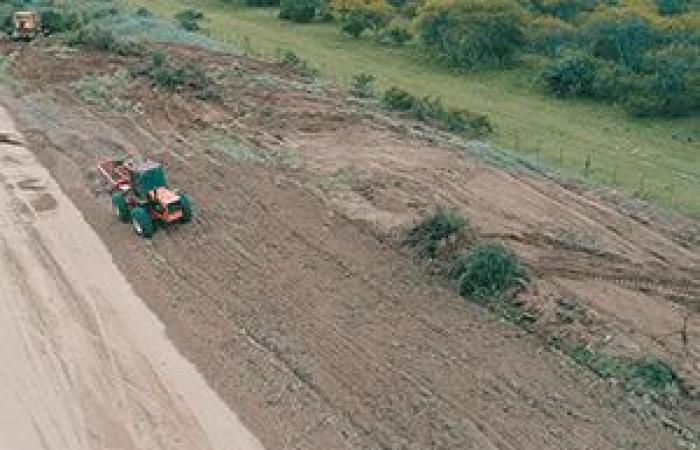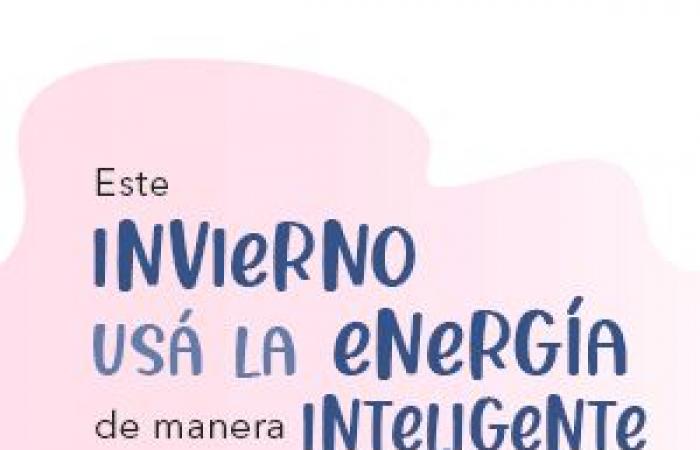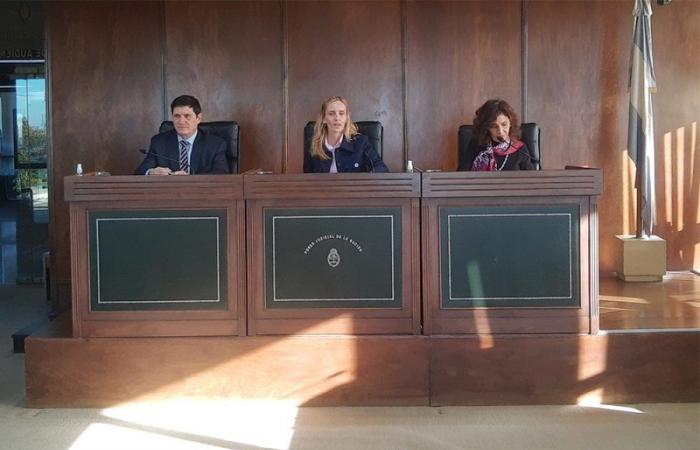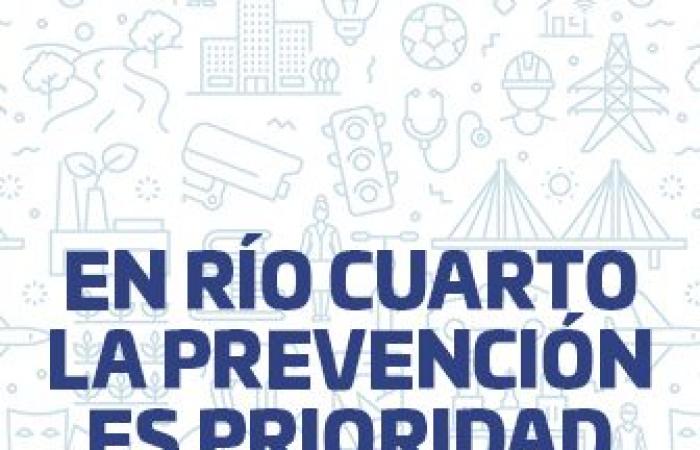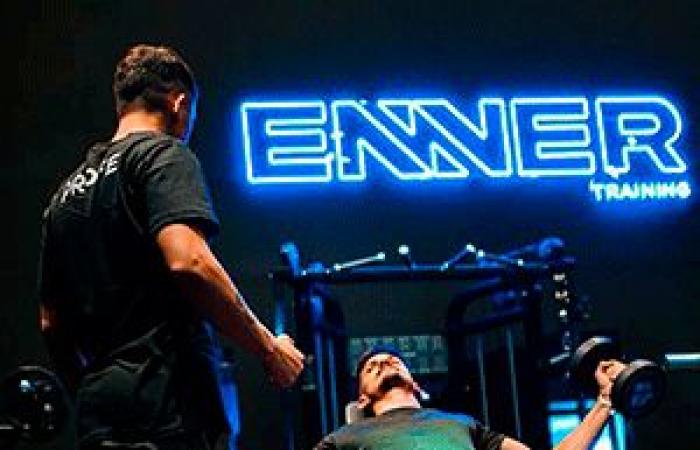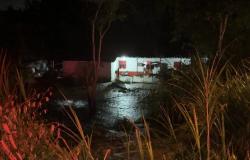The lawyers of the National State kicked the board on day 3 of the Mackentor case hearings. Although this is an action that is usually typical of lawyers who defend the State, this is seeking to extend all deadlines and resources until the last possible instance, doing so in the context of a case originating from crimes against humanity, the effects of which They still continue and that bears a 47-year persecution, reveals the decision to put the responsibilities of the terrorist State in a freezer by the current national government. The essay seeks to open a path that can become an impediment or obstacle to comprehensive reparation and prolong the tragedy of the victims. Specifically, Antonio Márquez and María Soledad Cuestas Bazán, representatives of the State, asked to apply the ordinary procedure based on Law 25344 (that the victims initiate an ordinary civil trial to obtain comprehensive reparation) and denounced that the guarantee was violated. of defense of the State in the “domestic” sphere during the 47 years that this case has been going on.
The proposal was rejected by lawyers Juan Carlos Vega and Eduardo Barcesat, representatives of the victims, and by assistant prosecutor Facundo Trotta. Now, the Federal Oral Court No. 1 (TOF No. 1) must resolve the demand of the National State before the case is opened for presentation of evidence and the rest of the procedures planned to comply with what was ordered by the Federal Chamber of Criminal Cassation. As Márquez and Cuestas Bazán reserved cassation, it may happen that, faced with a possible rejection of their claims, the file begins a course through higher authorities. In that case, the continuity or cessation of the case, until these potential events are resolved, would depend on whether or not suspensive effects are granted, so – at least – a controversial period opens.


The third hearing of the Mackentor case occurs within the framework of a new instance, opened based on a resolution of the Federal Chamber of Criminal Cassation, based on a background report from the Inter-American Commission on Human Rights and a ruling from the Court Supreme Court of Justice (CSJ). There he orders to remove from their duties the judges of the previous TOF N°1 (Jaime Díaz Gavier, Julián Falcucci, and José Camilo Quiroga Uriburu) and appoint new members of TOF N°1 to guarantee impartiality, who are Carolina Prado, as president, and Cristina Giordano and Facundo Zapiola, as judges.
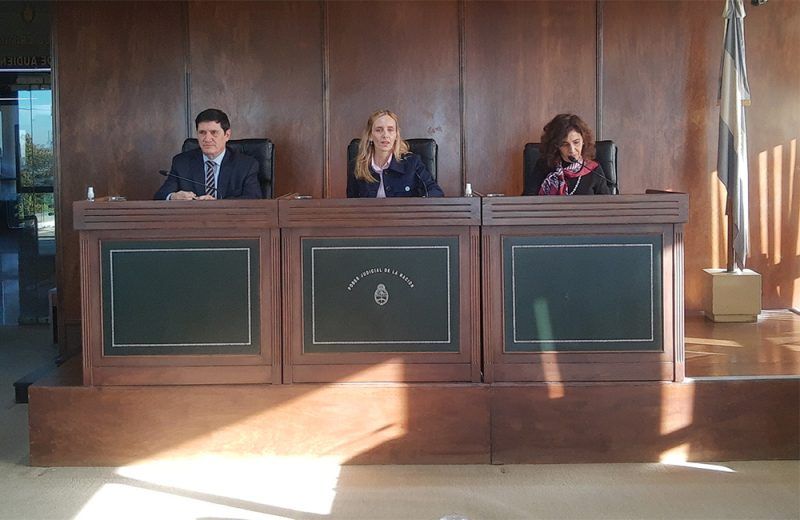

The judges of TOF N°1, Facundo Zapiola, Carolina Prado and Cristina Giordano.


Added to this is the request that a new resolution be issued on this chapter which, essentially, must begin by determining whether the judicial intervention of the company Mackentor SA dated May 2, 1977, issued by Judge Adolfo Zamboni Ledesma , was legitimate and valid or if, on the contrary, it is illegitimate and invalid. From this junction or crossing of routes, the legality or illegality of everything that happened until the ruling of TOF No. 1 of 2016 is then maintained, and the “extent” of the damages to be repaired.
For the representatives of the State, the outline of the procedure to comply with the CFCP ruling, the path is to start over. “This party has not participated in domestic actions in these 47 years. There is an obvious deficiency regarding the use of defense guarantees in court,” Márquez shot.


“The issue of damage cannot be resolved if the criminal issue has not been resolved. The court cannot establish compensation. The Law establishes that the complaining party must determine the damage,” the lawyer continued.
He also stated that “we must deny that reparation is part of the case process. Repair is not part of the penalty. Compensation does not integrate the repressive system of the State,” he argued.
Along these lines, he claimed “the inadmissibility of the procedure sought by the complainant” and requested “to apply the ordinary procedure based on Law 25344.” He then specified that “responsibility and obligation to repair have been resolved, but not the amount of compensation and a procedure is required to reach that amount.”


Subsequently, it required that the court “resolve what was raised by this party, prior to continuing the hearing by opening evidence because it understood that there are other regulations that resolve our claims and to eventually present other resources. I make a cassation reservation.”
THE RESPONSE TO THE COMPLAINT
He spoke first, from Buenos Aires, via Zoom, Barcesat. He said, in essence, that “Law 25344 is not applicable because it is not applicable in a case like this” and rejected the national State’s proposal that an ordinary trial be initiated to achieve comprehensive reparation. “The State cannot come and say that this is minute zero to begin repairs. Mackentor’s victims have been harmed for 47 years. International Treaties have hierarchy, they are not mere decorations for Argentine institutions. (…) it is evident that they are trying to stop the progress of this process.”


Vega, for his part, requested the rejection “in limine” of the national State’s request, “for being contrary to the National Constitution and the American Convention on Human Rights.
It requested TOF No. 1 to “declare the inapplicability of Law 25344 and any legal device that the State intends to use to hinder or impede the rights of the victims.”
He also pointed out against the State’s defensive strategy and asked that “the intervention be declared malicious or reckless,” since it seeks to prevent or hinder what was resolved by Report 293/21, the ruling of the CSJ and the ruling of the CFCP. which “is the comprehensive reparation of the victims.”


He then argued, in what appears to be one of the knots of this case, that “comprehensive reparation is in the body of report 293/21 of the Inter-American Commission on Human Rights (IACHR) and is mandatory for the State to comply with. In any case, the State should have appealed to the Inter-American Court of Human Rights against the merits report 293, and it did not do so.”
He also added that “this compliance must be within a reasonable period of time, the victims have suffered 47 years of persecution. We are the victims, not the State,” he highlighted.


WHAT PROSECUTOR TROTTA SAID
Trotta stated that he differs “with the State’s arguments to exercise defense in this case” and said that “the State questions not having participated in the preliminary hearing that determined the procedure for this trial and where his incorporation was precisely resolved. Not participating in that preliminary hearing has not affected them.”
He pointed out that “it is intended to channel this procedure in Law 25344”, indicated that he adhered to Barcesat’s analysis, and pointed out that “this prosecutor’s office does not foresee the application of Law 25344. We are not in a trial against the State, we are facing “a process arranged by a higher court to rule on a specific issue.”
He explained that “there is a firm issue which is the usurpation of Mackentor by the Terrorist State, and it is requested that it be defined whether the intervention of May 2, 1977 was null and void and the validity of subsequent acts and reparation.”
Later he expressed that “technically there is no action against the State. They prevented the victims from taking a civil action with the excuse that it had to be brought by the bankruptcy trustee who was part of a null process (as a consequence of the crimes against humanity that its members and the company had suffered).”
He stated that “the truth is that what is aired abroad or in Argentina is the same. The State is perfectly aware of the case and has exercised its right to defense since 2002 when it was informed of the consideration of the admissibility of the victims’ claim before the Inter-American Commission on Human Rights in the case of Mackentor v. National State for damages, which was rejected. by prescription. “Everyone knew the State.”
Finally, he considered it appropriate that “reparation can be resolved through Article 29 of the Penal Code.” Along these lines, he specified that “it can be resolved ex officio”, that is, by the judges of TOF No. 1, as requested by Vega and Barcesat.
[COBERTURA]
SEE Mackentor Day 2: Prosecutor Trotta said that the judicial intervention of 1977 was null and void and so were all the legal acts until today.
SEE Mackentor Day 1: The victims requested the annulment of all legal acts since 1977 and demanded that Supercemento be put on the bench.
SEE Mackentor Day 1: 47 years and the River shirt.
SEE Mackentor Case: The moment of truth has arrived.
MACKENTOR
Mackentor was a company dedicated to construction, with headquarters in Córdoba and Buenos Aires, and works throughout the country, which the military occupied on April 25, 1977 with the excuse that it financed a guerrilla organization, kidnapping managers and employees. . It was never possible to prove any connection to its members with the armed organizations of the time.
The company, whose main shareholder was Natalio Kejner, and in which its technical teams and employees participated in the ownership, was a powerful construction company in the ’60s and ’70s, equivalent to companies like Juan Chediack and somewhat smaller than IECSA of the Macri group, among others. The company was occupied, usurped and emptied with the participation of the military and the Federal Justice itself through Judge Adolfo Zamboni Ledesma. The main beneficiary of the action of State Terrorism was the Supercemento group, whose shareholders at that time were Franco Macri, Filiberto Bibiloni and Julián Astolfoni. This company was left with a pipe factory belonging to Mackentor and the work of the Second Villa María-San Francisco Aqueduct, one of the main public works of the time.
[HISTORIA DE UN CALVARIO JUDICIAL]
SEE Mackentor: They ask to declare the “total, absolute and incurable nullity” of the intervention in 1977 and the events that followed until today.
SEE Mackentor and “the true motivations underlying the sentence declared null and void due to arbitrariness.”
SEE Cassation annulled part of the ruling in the Mackentor case in the La Perla mega-trial and ordered that a new resolution be issued.
SEE Mackentor: They ask in Córdoba, the Federal Oral Court No. 1, to comply with the rulings of the Court and the IACHR.
SEE The Supreme Court declared the annulment of the sentence in the Mackentor case in the La Perla mega-trial.
SEE Mackentor Case: The Jury dismissed the complaint against Judge Martínez despite the ruling of the IACHR.
SEE Mackentor, an emblematic case of institutional violence.
SEE Mackentor Case: They ask to enable the fair to investigate the conduct of the Justice Jury’s prosecution.
SEE Human Rights: They request an investigation of the board of directors of Supercemento and an agricultural company in the Mackentor case.
SEE Mackentor Case: They file a criminal complaint against four legislators and a member of the TSJ.
SEE Against Humanity: After 8 months, without news in Jury’s request against the judge who sent Mackentor to bankruptcy.
SEE They denounce the actions of five federal judges after the IACHR ruling in the Mackentor case.
SEE The moral mandate of Talo Kejner.
SEE The IACHR condemned Argentina for human rights violations in the Mackentor case.
SEE Corruption and State Terrorism: the Mackentor case reached the Supreme Court.
SEE Mackentor Case: corruption, State Terrorism and judges who protected their peers and businessmen.
SEE Mackentor, the case that connects the military with a sector of economic power.
—
SUBSCRIBE TO DOSSIER360.
SUBSCRIBE TO REDACTION.
I RECEIVED THE EDITING NEWS NEWSLETTER IN YOUR E-MAIL.
CONTACT WITH THE EDITING OF EDITING.

